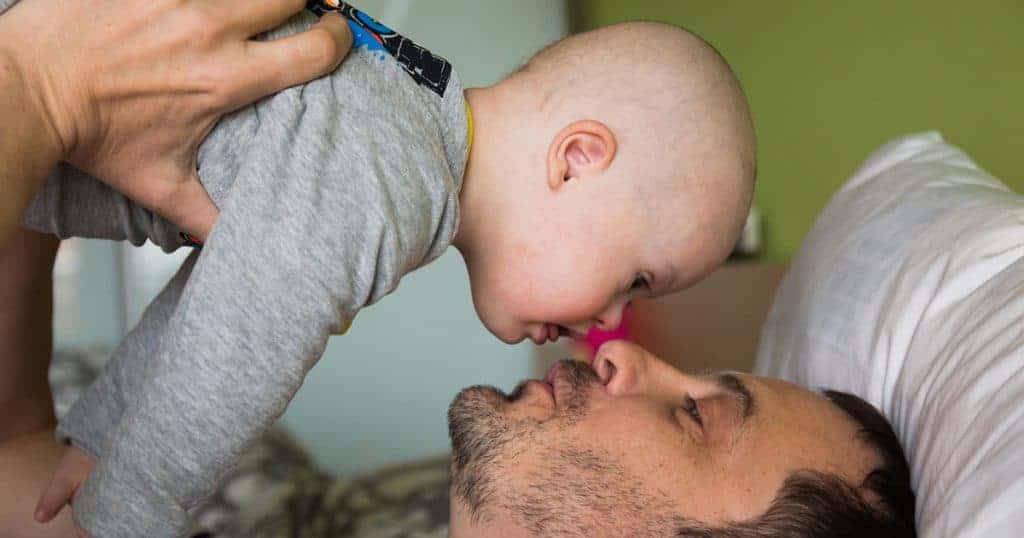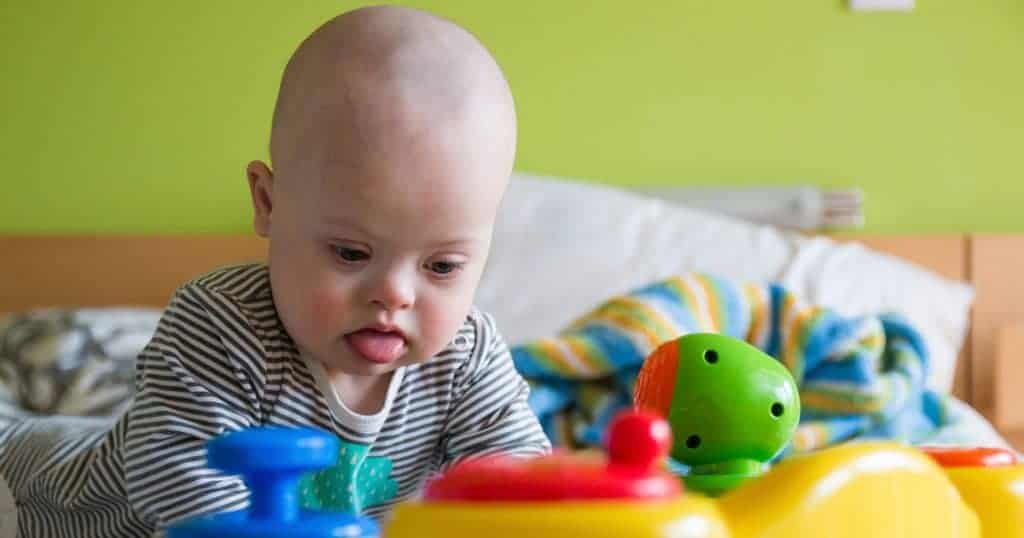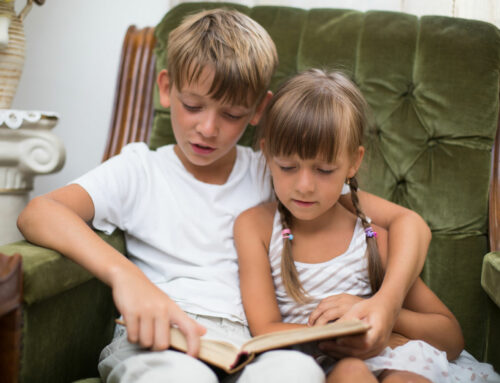By Sara Westgreen
Kids need their sleep, because parents need theirs! As if parenting a child with special needs weren’t difficult enough—children with special needs often experience sleep difficulties. Down syndrome, autism and ADHD, and other conditions are associated with a higher risk of certain sleep disorders, and some medications prescribed for special needs conditions can cause problems with sleep.
Children who experience sleep problems often have difficulty with fatigue, daytime sleepiness, impaired concentration and performance, and exacerbation of symptoms. Consider how your family can meet the needs of your special needs student by focusing on healthy sleep habits.
In this post, we will examine how specific disabilities affect sleep and best practices to lull your little one into a better night’s sleep.
Just How Much Sleep Do Kids Need
| Newborn-2 months | 2-4 months | 4-6 months | 6-9 months | 9-12 months | 12-18 months | |
|---|---|---|---|---|---|---|
| Total sleep | 16-18 hours | 14-16 hours | 14-15 hours | 14 hours | 14 hours | 13-14 hours |
| Nighttime sleep | 8-9 hours | 9-10 hours | 10 hours | 10-11 hours | 10-12 hours | 11-12 hours |
| Naptime Sleep | 7-9 hours | 4-5 hours | 4-5 hours | 3-4 hours | 2-3 hours | 2-3 hours |
Source: Sleep Help Institute.
Down Syndrome and Sleep

Down syndrome is a condition that occurs when children have a full or partial extra copy of chromosome 21. With this additional genetic material, development is often challenged and physical traits including low muscle tone, small stature and an upward slant to the eyes are common.
Children with Down syndrome often have cognitive delays, such as a lower IQ and speaking later than other children. About one in every 700 babies born in the United States has Down syndrome, and it is the most common chromosomal condition.
How Down Syndrome Affects Sleep
Children with Down syndrome are more likely to experience challenges with sleep, including lower quality of sleep, lower overall sleep time, less deep sleep and more nighttime awakenings. They may have increased bedtime anxiety and resistance, with 66 percent of children with Down syndrome falling asleep in a parent or sibling’s bed.
Common Sleep Disorders
Children with Down syndrome are more commonly affected by these sleep disorders:
- Sleep apnea
- Insomnia
- Bedwetting
- Sleep talking
- Sleep bruxism
- Rhythmic movement disorder
Sleep Apnea and Down Syndrome

Sleep apnea is particularly common in children with Down syndrome, affecting between 30 to 60 percent of children. Up to 80 percent of adults with Down syndrome have sleep apnea. This is due to physical features associated with the condition, including narrower upper airways, larger tongues and tonsils, and looser muscle tone, which can all contribute to obstructing the airway during sleep.
Sleep apnea is a dangerous sleep disorder, as it can reduce oxygen, creating brain damage or worsening congenital heart defects. It typically results in sleep deprivation, which leads to decreased productivity and academic performance. These can be especially challenging for children who already have difficulties with development.
The American Academy of Pediatrics recommends a baseline sleep study by age four for children with Down syndrome. If moderate to severe sleep apnea is diagnosed, children can be treated with an adenotonsillectomy, which removes the adenoids and tonsils.
Autism Spectrum Disorder and Sleep
Autism spectrum disorder (ASD) is a range of conditions that affect children and adults with challenges and developmental delays. Children with autism often struggle with social skills, communication and repetitive behaviors.
How Autism Affects Sleep
Up to 80 percent of young people with ASD have trouble with falling asleep or staying asleep at night. Children with ASD may have an irregular circadian rhythm, anxiety, depression, epilepsy or acid reflux, all of which can interfere with sleeping well.
ASD medication, including selective serotonin reuptake inhibitors (SSRIs) and antipsychotics, can have side effects that interfere with sleep. SSRIs tend to cause agitation and hyperactivity before bed, while antipsychotics can cause excessive drowsiness during the day.
A lack of sleep can make some behavioral characteristics of ASD more difficult, including a lack of concentration, aggression and hyperactivity. This can make it difficult for children with autism to do well behaviorally and academically.
Common Sleep Disorders
Children with ASD are at a greater risk of experiencing the following sleep disorders:
- Insomnia
- Nightmares
- Night terrors
- Bedwetting
Insomnia and Autism
Insomnia is the most prevalent sleep disorder affecting children with autism. With insomnia affecting 66 percent of children with autism, children find it difficult to fall asleep or stay asleep on a regular basis.
ADHD and Sleep
Attention-deficit/hyperactivity disorder (ADHD) is a mental health disorder. It is characterized by inattentive, impulsive and hyperactive behaviors. Children with ADHD often have difficulty with restlessness, staying focused, and self control.
How ADHD Affects Sleep
As many as 50 percent of children with ADHD experience difficulty with sleep. Often, they have higher levels of daytime sleepiness, anxiety or resistance at bedtime, difficulty falling asleep or waking up, and waking during the night.
Children with ADHD are twice as likely to have sleep disordered breathing, periodic limb movement disorder or restless legs syndrome. Adolescents are at a greater risk of insomnia.
Medications used to treat ADHD can cause insomnia or disturb sleep. Prescribed medicine includes stimulants, non stimulants and antidepressants. ADHD medications that can cause sleep difficulties include Adderall, Ritalin, Concerta, Focalin, Daytrana, Metadate, Methylin, Dexedrine, and Vyvanse.
Common Sleep Disorders
Children with ADHD often suffer from sleep disorders including:
- Insomnia
- Sleep apnea
- Restless legs syndrome
- Periodic limb movement disorder
- Delayed sleep phase disorder
Insomnia and ADHD
Up to 15 percent of children with ADHD experience insomnia, and that increases to 50 percent for adolescents. With insomnia, children have difficulty falling asleep. They may get a burst of energy before bed, or can’t get their mind to stop racing. Sleep may be fitful, and they may be easily woken up by noise.
How to Help Children with Special Needs Sleep Better
When children do not get enough quality sleep, they struggle. They experience daytime sleepiness, difficulty concentrating, impaired performance and may have behavior problems.
It’s important to help children with special needs get the best sleep possible so that a lack of sleep does not make symptoms more difficult to manage. This will also help your student be prepared to perform well at school throughout the day.
Some sleep issues will go away with natural child development and will be eliminated as the child ages. However, sleep disorders and challenges can be dangerous and make life more difficult, so they should be addressed if possible.
Treatments for Sleep Disorders
Serious sleep disorders, such as moderate to severe sleep apnea, should be treated. In children, sleep apnea may be treated with an adenotonsillectomy, removing the adenoids and tonsils.
Other sleep disorders, such as insomnia, can be treated with sleep therapy. Sleep therapy can help children manage anxiety and hyperactivity before bed. Children can use relaxation exercises including meditation and deep breathing to reduce anxiety before going to sleep. With stimulus control, you can manage how children spend their time in bed so they train their brains to only associate their bed with sleep (and not with playing with toys, reading or looking at screens).
Children who take medication for disorders may benefit from changing to a different medication that does not have the same effect on sleep. Some children respond well to melatonin supplements, which can help children fall asleep and regulate their sleep-wake cycle.
Some physicians recommend prescription medications such as sedative-hypnotic z-drugs to treat sleep disorders. These include Ambien, Lunesta and Sonata. However, these medications can have side effects, carry high dependency risks, and can exacerbate difficult symptoms. Sleep medication is typically considered a last resort.
Sleep restriction, which sets a strict schedule for bed and wake times with no naps allowed, can be beneficial. Sleep restriction can train a child’s body to associate their scheduled period of rest time with sleep.
Light therapy can help with delayed sleep phase syndrome. This therapy uses light (usually a light box or device) to resynchronize the circadian cycle.
Improving Sleep Habits
While treatment including medication and therapy can be effective in improving sleep difficulties in children with special needs, they may not be necessary for all children. Often, sleep can be improved with better sleep habits. Improving sleep habits should be the first step to address sleep difficulties for children with special needs.
- Maintain a regular bedtime routine. Have children go to bed at the same time every night and wake up at the same time each morning, even on weekends and vacation. Go through the same steps before bed each night, such as brushing teeth, reading a book and giving a hug before turning off the light. Keeping the same routine night after night will help train your child’s brain to trigger feelings of sleepiness.
- Create a sleepy bedroom environment. Your child’s bedroom should be relaxing and an ideal environment for sleeping. It should be quiet, dark and cool. Make sure you’re choosing an appropriate mattress, bedding, and sleepwear. Keep in mind that children with special needs may require low profile beds, bed rails, weighted blankets or no-frills bedding helpful for sensory sensitivities.
- Avoid food that can interfere with sleep. Heavy meals, sugar, and caffeine can keep kids up at night and decrease the quality of sleep. These items should be avoided, especially in the hours right before bed.
- Limit screen time. Do not allow children to use screens in bed, and cut off screen time at least an hour before bedtime. The light from screens can confuse your child’s brain and make it think it’s daytime and time to be awake and alert even when it’s time to go to bed.
- Practice relaxation techniques. Try listening to soft music, reading, and meditation. Breathing exercises can also be helpful.

Has your family found success managing sleep patterns and schedules with your special needs child? Be sure to share your experiences in the Comments Section below.
To find more about how THSC can help you homeschool your children with special needs, check out the full list of THSC member benefits, the special needs section of our website, and the special needs student programs THSC offers at our Conventions.
***
Sara Westgreen is a researcher for the sleep science hub Tuck.com. She sleeps on a king size bed in Texas, where she defends her territory against cats all night. A mother of three, she enjoys beer, board games, and getting as much sleep as she can get her hands on.



